Still Alice was once upon a time poised as a big Oscar contender, including Best Picture. Now, its luster has dimmed to the single nomination of Julianne Moore for Best Actress — one of the year’s few nominations that looks like a lock for the win. Neither of these are exactly surprising. As a movie, Still Alice isn’t just on the parochial side, it frankly has the bland look of a TV movie. In fact, it reminds me a good deal of Ben Lewin’s The Sessions (2012). (I can sense people heading to IMDb to be reminded what that was, because it quickly vanished from being a topic of conversation.) Both are high-minded, well-intended medical dramas, both are competently made, and both started off with more Oscar notions than finally materialized — plus, both feel more suited to TV than the big screen. However, Still Alice — for all its lack of cinematic flair — is a much better film, and not just because of Moore’s performance. There’s more here than that — including a pretty terrific turn by Kristen Stewart.
The film is the story of Alice Howland (Moore), an upscale, aggressively professional and highly-regarded professor of linguistics at Columbia, whose life — and the lives of her family — is derailed when her bouts of confusion turn out to be early-onset Alzheimer’s disease. Worse than that, her particular strain of the disease is genetic and may have been passed to any — or all — of her three adult children, who, in turn, can pass it on to their children. In one sense, you know almost exactly where this is going — at least in broad strokes. And if there are any lingering doubts, the title itself is there to clue you in that this is the story of a woman desperately fighting to hold on to her own identity against a disease that won’t let her. You can virtually go down a checklist of notes that must be hit over the course of the film, but there are bits and pieces that filter through the predictable and make Still Alice a lot more compelling than it might have been.
Yes, it’s all built around Moore’s performance, though I would go so far as to say that it’s built around the combined impact of her and Stewart’s performances. I won’t say that Stewart is a revelation here. In the first place, she’s been good before, but she’s also not stepping far out of her usual deadpan style. (Someone recently likened her to 1940s comedienne Virginia O’Brien, whose claim to fame was registering no emotion whatever — even while singing. The comparison is a good one, though Ms. Stewart isn’t trying to be funny.) What’s different is that not only does the character of willful and wayward daughter Lydia suit her, but she manages to suggest great depths of emotion being held — somewhat tentatively — in check behind that reserve. She and Moore hold you to the screen. And, in this regard Messrs. Glatzer and Westmoreland’s rather laissez-faire directing style may actually be in the film’s favor, because it gives the film to them without interference or directorial editorializing. Moore is good in her scenes without Stewart, but those tandem scenes are something special.
The film’s biggest shortcoming — apart from a musical score by Ilan Eshkeri that uneasily alternates between decorative piano and full-blown bombast — lies in the roads not taken. Ideas are raised — like the one about smart, well-educated people being harder or taking longer to diagnose because they develop ways of covering the problem — that just fall by the wayside. That the film nor the characters seem even vaguely aware that their elevated financial status affords them the ability to cope with the situation in a way that is far removed from the reality of the average person makes the film a little too privileged and short sighted. Am I saying Still Alice is not worth your while? No. Far from it. I’m saying it could have been more worthwhile and aware than it is. As for the film, it has two strong performances and enough grace notes to make that a solid yes, you should see this. Rated PG-13 for mature thematic material and brief language including a sexual reference.
Playing at Carolina Cinemas.



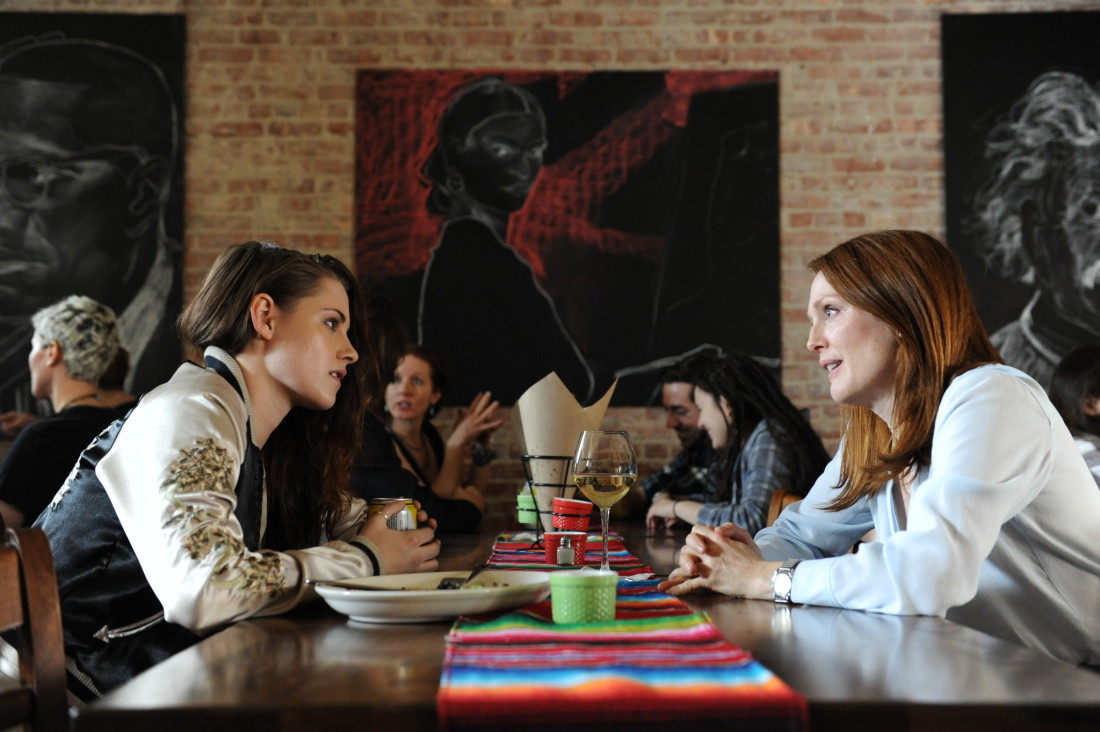
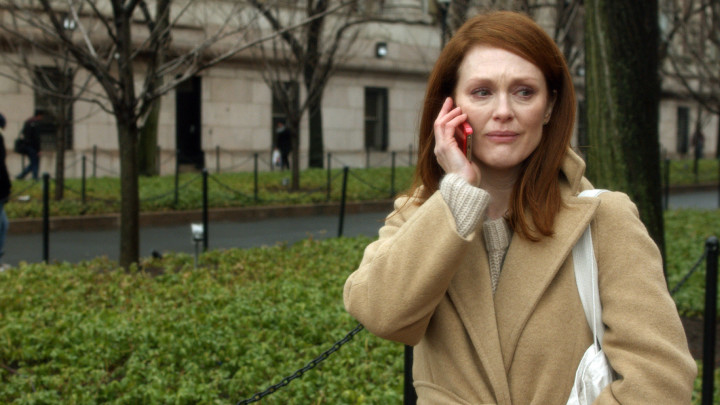
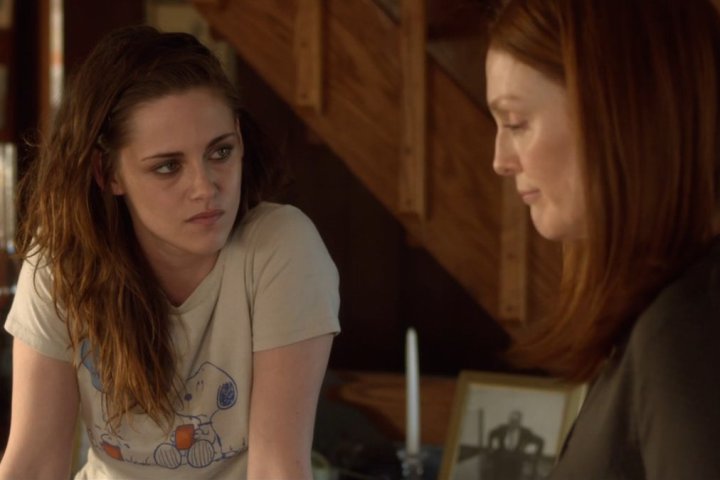
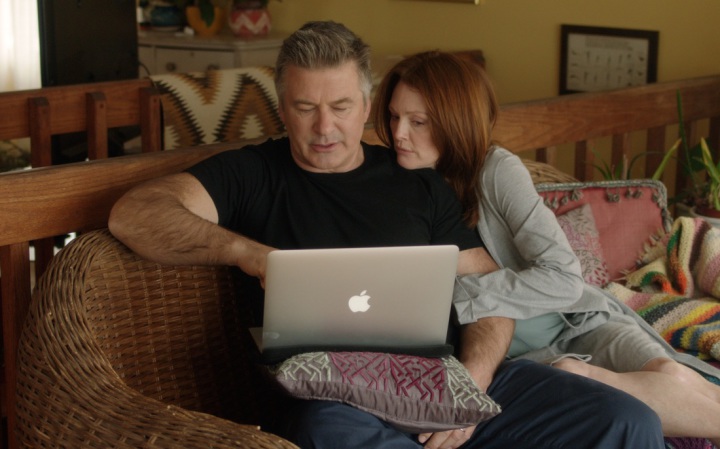
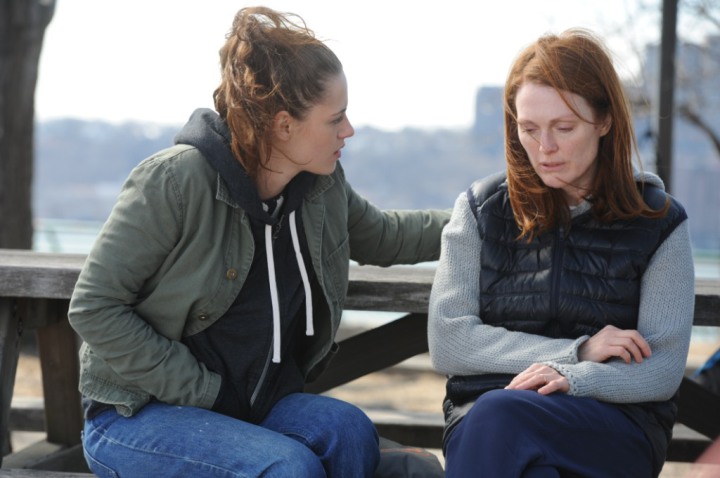
I feel I am on a collision course with this illness since it is in all generations of my family. It seems like the pain of watching this unfold for some of us might be too much “holding the mirror up to nature” and as a result mught be more reality than we can handle. I wish I were brave enough to see this.
Having some kind of an idea of how much to heart you take the emotional content of movies, I’d probably suggest you avoid this.